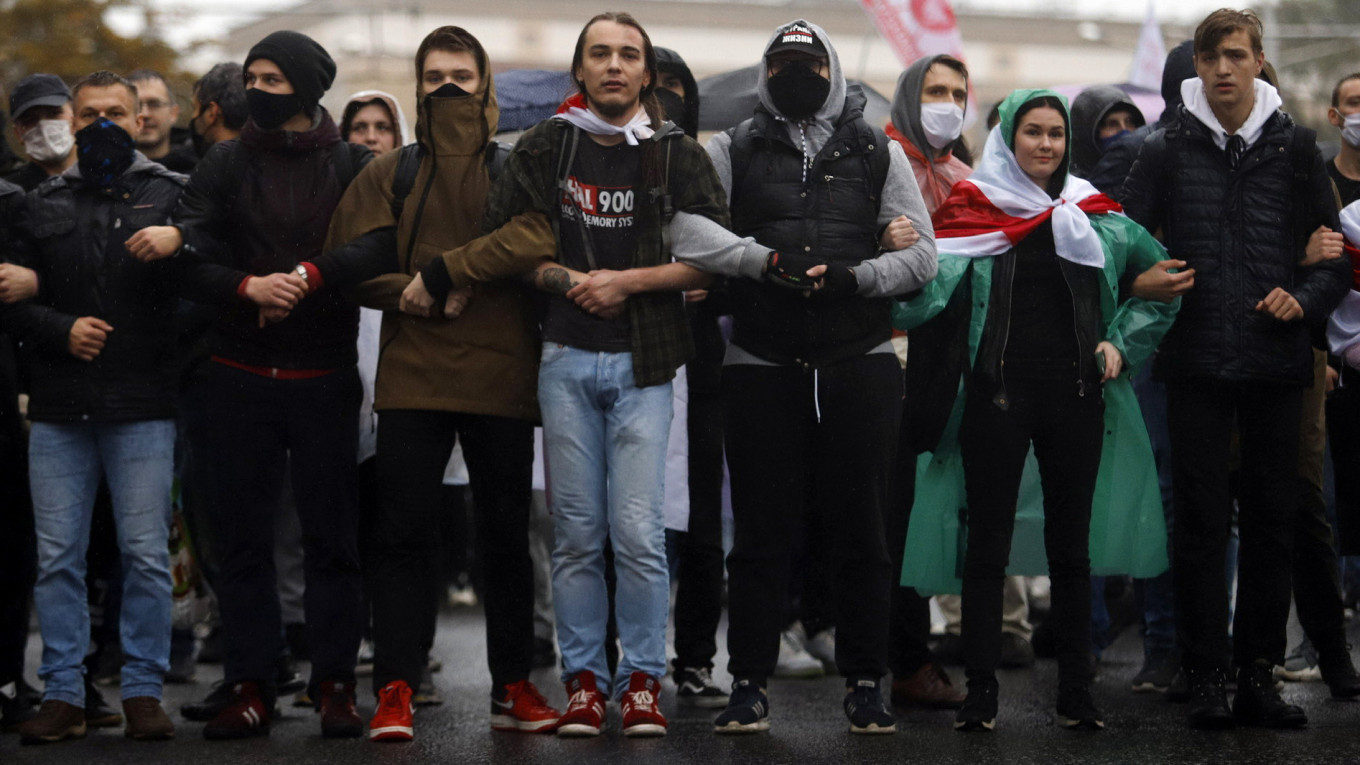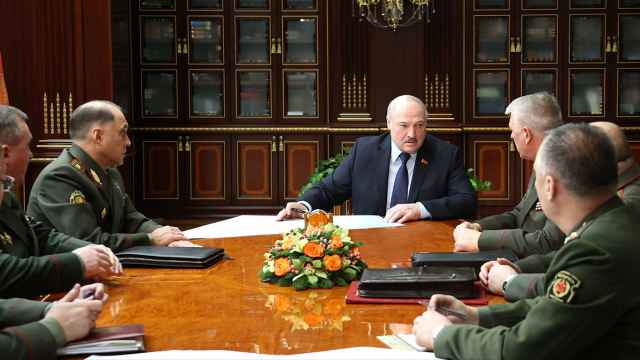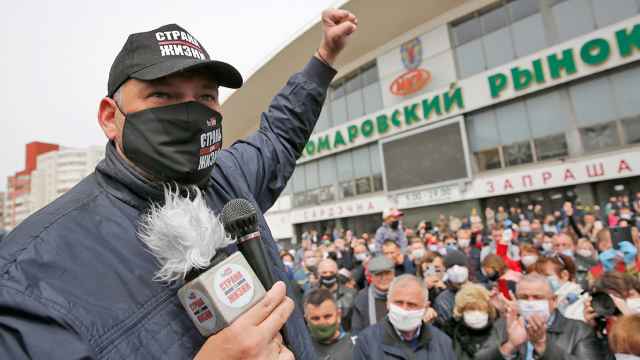Police deployed water cannon and stun grenades against opposition demonstrators in Minsk Sunday after strongman leader Alexander Lukashenko raised hopes for change by meeting jailed opposition figures.
Large numbers of black-clad masked police, internal troops and men in plain clothes emerged from unmarked minibuses and ran towards protesters in the capital Minsk, pulling some to the ground and hitting them with batons, witness footage on independent news sites showed.
In one video, filmed by a reporter for the Nasha Niva independent newspaper, internal troops appear to run towards demonstrators while threatening them with guns.
"In Minsk at least, water cannon and stun grenades were used," interior ministry spokeswoman Olga Chemodanova told AFP.
She said that the number of detainees would only be released Monday, while the Viasna rights group, which monitors detentions at political protests, said at least 140 people had been detained in Minsk as well as around 30 in other cities.
Among those detained were journalists from Russia's TASS state news agency, although they were later released, the agency reported.
Protesters have gathered every weekend since Lukashenko claimed victory in Aug. 9 elections over a popular opposition candidate, Svetlana Tikhanovskaya, who claims to have been the true winner.
The European Union and the United States have refused to recognize Lukashenko's inauguration for a sixth term, saying the polls were not free and fair and condemning alleged abuse and torture of detained protesters.
The United States and the EU have also hit Belarus with sanctions for allegedly rigging the vote and orchestrating the crackdown on protesters, targeting key officials — but not Lukashenko himself.
Protesters came out with umbrellas on a rainy afternoon for the latest in a series of mass protests urging Lukashenko to step down, called the "March of Pride".
Independent media reported that several thousand people were taking part in scattered demonstrations as police blocked roads in the city centre.
Protester's head bandaged
The protest came after the 66-year-old authoritarian leader, in power since 1994, on Saturday took the unusual step of visiting a group of recently jailed opposition politicians.
Officially, the meetings were over Lukashenko's plans for constitutional reforms, which he has presented as a response to public demands for change.
The opposition hailed this as a sign that Lukashenko senses his weakness and is seeking some compromise with the protest movement, as Tikhanovskaya has recently met national leaders including French President Emmanuel Macron and German Chancellor Angela Merkel.
Tikhanovskaya wrote on social media that Lukashenko had "acknowledged the existence of political prisoners whom he used to call criminals."
But she added that "you can't have dialogue in a prison cell."
However the authorities on Sunday used some of the harshest tactics seen since the election, after ordering a reduction of mobile internet to hinder coordination and sending military vehicles into the center of the capital.
Several thousand protesters dodged police who closed off main streets to prevent columns of marchers from reaching the city centre.
Some of those detained were wrapped in the red-and-white protest flag, footage posted by the Tut.by news site showed.
One man had his head bandaged at the scene, the Belsat news site reported.
The police crackdown "underlines once more that the regime is not capable of leading honest and open dialogue with society," opposition politician Pavel Latushko commented on social media.
A Message from The Moscow Times:
Dear readers,
We are facing unprecedented challenges. Russia's Prosecutor General's Office has designated The Moscow Times as an "undesirable" organization, criminalizing our work and putting our staff at risk of prosecution. This follows our earlier unjust labeling as a "foreign agent."
These actions are direct attempts to silence independent journalism in Russia. The authorities claim our work "discredits the decisions of the Russian leadership." We see things differently: we strive to provide accurate, unbiased reporting on Russia.
We, the journalists of The Moscow Times, refuse to be silenced. But to continue our work, we need your help.
Your support, no matter how small, makes a world of difference. If you can, please support us monthly starting from just $2. It's quick to set up, and every contribution makes a significant impact.
By supporting The Moscow Times, you're defending open, independent journalism in the face of repression. Thank you for standing with us.
Remind me later.






